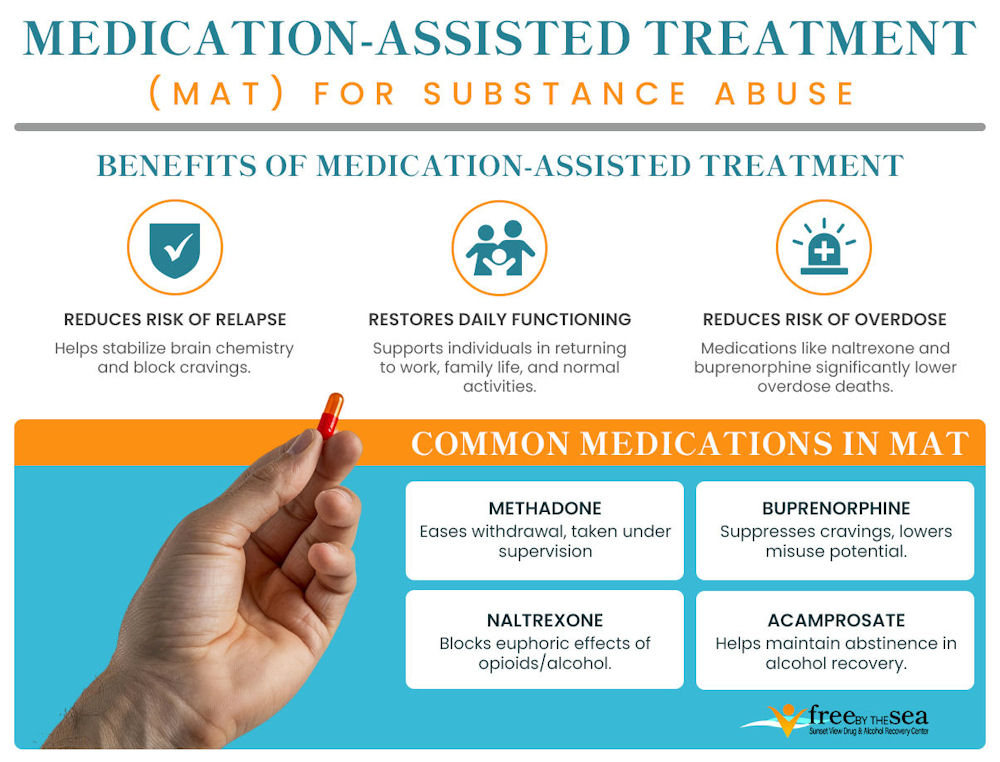A Comprehensive Guide to Substance Abuse Rehabilitation
Substance Abuse recovery, frequently referred to as rehab, is a structured procedure created to aid people overcome dependence on drugs, alcohol, or other habit forming substances. It is not merely concerning cleansing-- it is a journey of mental, psychological, and physical transformation. Rehab facilities give secure settings where people can face the source of their dependency, address mental triggers, and discover coping devices to endure long-lasting sobriety. This process is guided by trained specialists, consisting of specialists, medical doctors, and therapists that comprehend the complicated nature of addiction as both a behavior and physiological problem.
Recognizing the Core important Abuse Recovery
At its core, rehab is about restoring an individual's life. Addiction usually leaves behind deep marks-- strained relationships, economic distress, health issue, and mental illness. Via detailed rehab programs, people are given the tools to repair these facets gradually. Rehabilitation isn't nearly avoiding substances; it's concerning recovering control and uncovering one's feeling of self-respect. The programs emphasize structure, uniformity, and individual responsibility, which are key to lasting recovery success. Every little milestone throughout rehab functions as a foundation for lasting sobriety.
Substance Abuse Abuse rehab is not a one-size-fits-all approach. It acknowledges that each individual's addiction story is special-- what led to Substance Abuse abuse, exactly how it progressed, and exactly how recuperation can be sustained vary extensively. Treatment centers customize care strategies based on individual evaluations, making sure that every person obtains assistance that straightens with their mental state, dependency background, and life conditions. This tailored approach greatly enhances healing end results and assists prevent relapse as soon as individuals rehabilitate right into daily life.
The Advantages of Inpatient Rehab Programs
Inpatient rehab, also recognized as domestic therapy, uses one of one of the most efficient methods for those fighting serious Substance Abuse dependency. One of its main advantages is the distraction-free and organized atmosphere. When a person goes into an inpatient center, they are briefly eliminated from external triggers-- such as close friends who make use of substances, stressful offices, or household problems-- that might impede their recuperation. This isolation from negative impacts permits clients to concentrate totally on healing. Living within a helpful and monitored setup produces the security needed to break old routines and develop much healthier patterns of behavior.
One more significant benefit of inpatient rehab is the 24/7 professional guidance available to every individual. Withdrawal signs and symptoms from drugs or alcohol can be unforeseeable and, in many cases, dangerous. Inpatient centers have clinical teams that offer day-and-night treatment, making certain clients are secure and comfy throughout detoxification. Beyond physical health, constant supervision likewise uses psychological peace of mind-- individuals recognize that help is available at any time, which reduces anxiety and builds trust in the healing process. This instant access to emotional and clinical assistance dramatically improves the success rate contrasted to outpatient treatment for serious dependencies.
Inpatient rehab programs cultivate a solid sense of community and liability. Individuals engage with others who share comparable battles, take part in group treatment, and engage in tasks that urge synergy and compassion. This environment supports good understanding and decreases sensations of seclusion usually connected with addiction. By attaching with peers and discovering from their experiences, people establish social bonds that continue to sustain them even after leaving the center. This feeling of belonging, combined with constant specialist support, makes inpatient rehab a very effective structure for sustainable recuperation.
Inpatient Rehab Providers Supplied
Inpatient rehabilitation facilities provide a varied range of solutions developed to deal with the mind, spirit, and body simultaneously. The very first phase commonly includes clinical detoxification, a procedure that securely removes compounds from the body while managing withdrawal signs and symptoms. Detoxification is monitored by physician who may provide medication to relieve pain and stop difficulties. Clients shift to structured everyday programs that include therapy, health, and treatment tasks when detox is complete. This integrated method guarantees that patients not only conquer physical dependence but also address emotional and mental elements of addiction.
Healing solutions are at the heart of inpatient rehab. Facilities offer individual therapy sessions, where patients function one-on-one with certified therapists to uncover the underlying root causes of their dependency-- such as injury, mental wellness problems, or unsettled emotional pain. Cognitive-behavioral treatment (CBT), dialectical habits therapy (DBT), and inspirational speaking with are among one of the most usual evidence-based techniques used. Furthermore, group treatment sessions supply a supportive area for clients to share experiences, gain perspective, and establish interpersonal abilities. Family treatment is also regularly included, helping to rebuild trust and improve interaction between individuals and their loved ones.
Past conventional treatment, numerous inpatient programs consist of alternative and entertainment services to advertise overall health - Inpatient rehab. Yoga, reflection, art treatment, and physical fitness programs help in reducing stress and anxiety and instruct mindfulness. Nutritional therapy makes certain that clients reconstruct physical wellness, as Substance Abuse usually depletes the body's necessary nutrients. Some rehabilitation centers even use vocational training and educational workshops to aid patients get ready for reintegration right into culture. These varied solutions are made to heal the entire individual-- not simply deal with dependency signs and symptoms-- by fostering equilibrium, objective, and strength
Why You Need To Think About Outpatient Programs
While inpatient rehab uses an immersive and extensive approach, outpatient programs provide a choice that permits adaptability for individuals who can not commit to full-time residential therapy. Outpatient rehabilitation allows patients to get organized treatment and medical support while keeping their day-to-day obligations-- such as job, school, or household care. For several people with mild to modest dependency, outpatient therapy provides the excellent equilibrium between healing and everyday life. It permits people to practice the coping abilities they learn in real-world settings, enhancing their resilience in the face of day-to-day challenges.
An additional reason to take into consideration outpatient programs is their cost-effectiveness. Inpatient care can be costly as a result of lodging, dishes, and 24-hour supervision, which might not be financially practical for everyone. Outpatient programs, nonetheless, commonly cost much less because they do not need household stays. Lots of facilities supply sliding-scale payment choices or approve insurance to make treatment obtainable. For those who have actually currently completed inpatient rehab, transitioning right into an outpatient program works as an important continuum of treatment, aiding maintain responsibility and stop relapse with recurring assistance.
Additionally, outpatient programs provide a high degree of personalization. Clients can choose between partial hospitalization programs (PHP), extensive outpatient programs (IOP), or standard outpatient care, depending upon their degree of requirement. Each alternative gives differing levels of framework and time dedication. As an example, IOPs usually include a number of therapy sessions each week, while conventional outpatient treatment may include regular counseling check outs. This flexibility ensures that patients can obtain specialist assistance tailored to their recovery phase, making outpatient programs a practical and encouraging selection for long-lasting recovery upkeep.

Checking Out Other Treatment Alternatives basically Abuse Recovery
Past outpatient and inpatient rehabilitation, there are several other therapy options offered for people looking for recovery from Substance Abuse dependency (dual diagnosis rehab NJ). Medication-assisted therapy go to my site (MAT) is one such strategy, incorporating recommended medications with behavior therapy to take care of withdrawal signs and reduce yearnings. Medications like buprenorphine, methadone, or naltrexone are frequently made use of in opioid addiction therapy, while acamprosate or disulfiram may sustain alcohol healing. Floor covering assists maintain brain chemistry, enabling people to focus on treatment and way of living adjustments without the overwhelming discomfort of withdrawal

Alternative therapies are also coming to be significantly Go Here preferred basically Abuse treatment. These might consist of all natural techniques like acupuncture, horse therapy, adventure-based counseling, and spiritual healing programs. While these methods may not change typical treatment, they can match it by improving emotional law, self-awareness, and self-confidence. The goal of exploring various therapy choices is to create a recuperation strategy that resonates with each person's worths, beliefs, and way of living. A tailored combination of therapies often generates the most sustainable outcomes, empowering people to live a satisfying, substance-free life.
The Path to Long-Term Soberness and Healing
Finishing rehab-- whether inpatient or outpatient-- is just the beginning of a long-lasting healing trip. Aftercare programs play a vital role in keeping sobriety and preventing regression. These programs might include recurring therapy, assistance groups like Narcotics Anonymous or Twelve Step Programs, and sober living plans that provide ongoing structure. Uniformity and community are crucial; individuals that remain linked to healing networks are much more likely to maintain long-lasting progress. Rehabilitation instructs the necessary coping abilities, but aftercare makes certain that those abilities are used and enhanced in real-life scenarios.
Long-term healing additionally depends on lifestyle modifications that sustain physical and psychological health. Establishing healthy routines-- such as normal workout, balanced nourishment, and mindfulness techniques-- helps restore balance to the body and mind. Taking part in deliberate tasks like volunteering, pursuing pastimes, or reconnecting with liked ones can fill the emotional space left by Substance Abuse usage. Concentrating and developing a favorable frame of mind on future goals give recovering individuals a renewed feeling of identity and instructions. Sobriety is not regarding deprival; it has to do with recovering life's richness and opportunities.

Through thorough rehab programs, individuals are offered the tools to fix these elements gradually. Inpatient rehabilitation programs promote a solid sense of area and liability. While inpatient rehabilitation provides a extensive and immersive approach, outpatient programs supply an alternative that permits flexibility for people that can not commit to permanent domestic therapy. Outpatient rehab makes it possible for clients to obtain structured therapy and medical assistance while maintaining their daily obligations-- such as institution, family members, or work treatment. Beyond outpatient and inpatient rehabilitation, there are several other treatment alternatives readily available for individuals seeking recovery from Substance Abuse addiction.